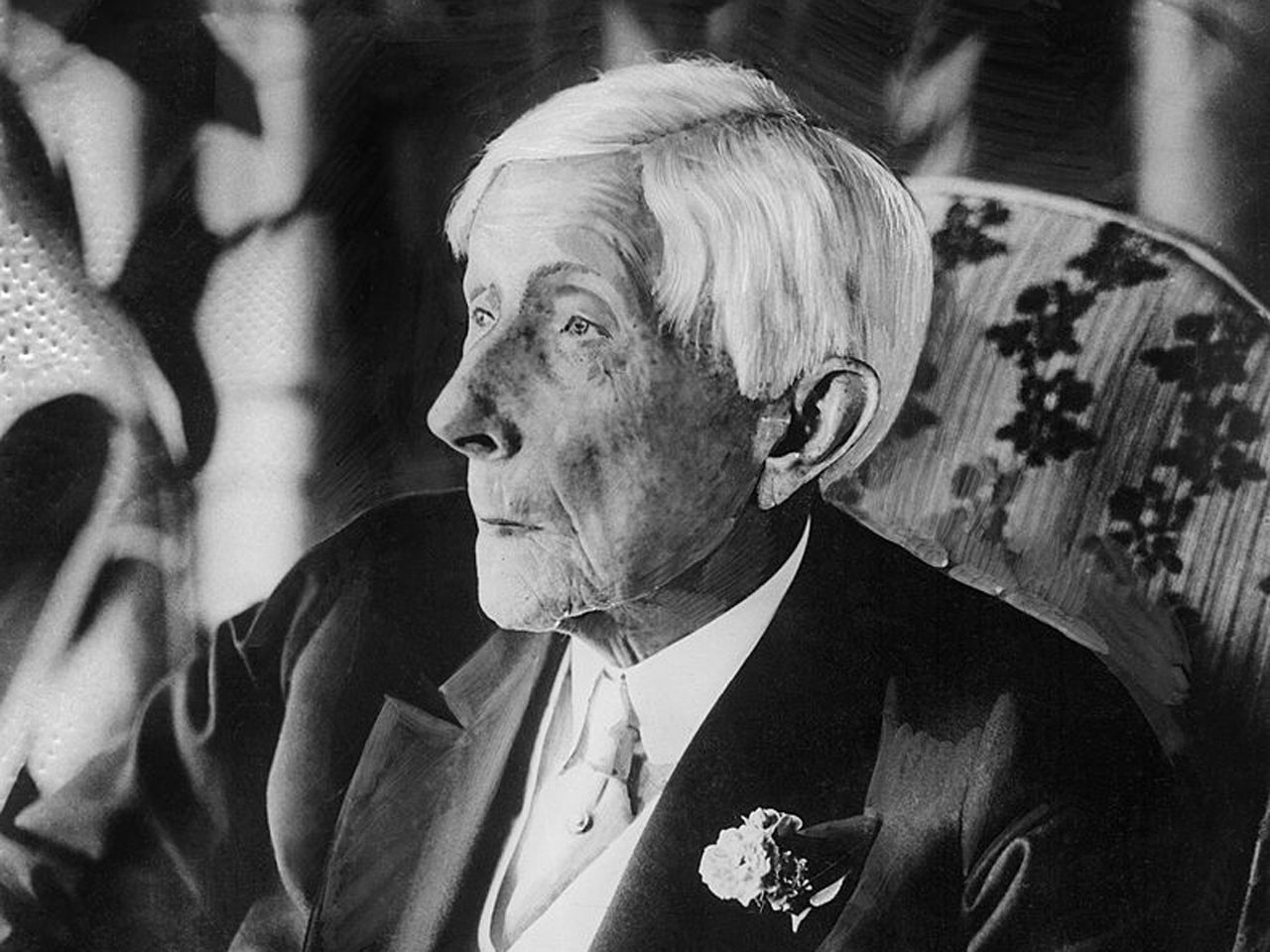Exploring The Rockefeller Family's Wealth And Influence
The Rockefeller family's immense wealth and influence have fascinated historians, economists, and the general public for generations. As one of the most iconic families in history, the Rockefellers have built a legacy that spans multiple industries, continents, and centuries. But just how extensive is the wealth of this legendary family, and what factors have contributed to their enduring prosperity?
From their origins in the oil industry to their expansion into banking, real estate, and philanthropy, the Rockefeller family has consistently demonstrated an extraordinary ability to grow and preserve their fortune. Their impact extends far beyond mere financial success, shaping global economies, politics, and culture in profound ways. This article will explore the intricacies of the Rockefeller family's net worth, delving into its historical roots, current estimates, and the factors that have contributed to their lasting success.
In the following sections, we will examine the Rockefeller family's journey from modest beginnings to global prominence. Whether you're a history enthusiast, a finance expert, or simply curious about the world's wealthiest families, this article promises to provide valuable insights into the Rockefeller family's remarkable legacy.
Read also:Exploring Movierulzcom Kannada A Comprehensive Guide
Table of Contents
- The Evolution of the Rockefeller Family
- Understanding the Rockefeller Family Net Worth
- The Foundational Role of the Oil Industry
- Diversifying Wealth Across Industries
- The Philanthropic Pillar of the Rockefeller Legacy
- Shaping Global Economies and Policies
- The Modern-Day Rockefellers
- Real Estate: A Cornerstone of Their Wealth
- Navigating Challenges and Uncertainty
- Conclusion: The Timeless Legacy of the Rockefellers
The Evolution of the Rockefeller Family
The Rockefeller family's remarkable journey begins with John D. Rockefeller, who founded Standard Oil in 1870. What started as a modest oil refinery quickly grew into a global powerhouse, making Rockefeller the wealthiest individual in modern history during his time. His unparalleled business acumen and strategic mergers laid the foundation for the family's immense wealth, which has continued to grow and evolve over the decades.
Early Beginnings
John D. Rockefeller's early life was marked by humble origins. Born in 1839 in Richford, New York, he began his career as a bookkeeper before venturing into the oil business. His meticulous attention to detail, innovative cost-management strategies, and relentless pursuit of efficiency allowed him to outpace competitors and establish Standard Oil as a dominant force in the industry. These early successes set the stage for the family's enduring legacy.
Expansion and Dominance
By the late 19th century, Standard Oil controlled nearly 90% of the U.S. oil market, solidifying its position as a monopoly. However, this dominance attracted scrutiny from antitrust regulators, culminating in the company's dissolution in 1911. Despite this setback, the Rockefeller family's resilience and adaptability ensured their continued prosperity, as they reinvested their wealth into new ventures and industries.
Understanding the Rockefeller Family Net Worth
Estimating the Rockefeller family's net worth is a complex endeavor, given the vastness of their wealth and its distribution across multiple generations and entities. While John D. Rockefeller's personal fortune was estimated at $340 billion (adjusted for inflation), the family's collective wealth today is believed to be around $11 billion. However, this figure can vary significantly depending on the valuation method used, as the family's assets span a wide range of industries and investments.
Factors Influencing Net Worth
- Stock ownership in major corporations, including those that trace their roots back to Standard Oil.
- Extensive real estate holdings, including iconic properties like Rockefeller Center.
- Philanthropic foundations, which manage significant assets and contribute to the family's legacy.
- Private equity and venture capital investments, reflecting the family's forward-thinking approach to wealth management.
The Foundational Role of the Oil Industry
The oil industry remains a cornerstone of the Rockefeller family's wealth, even though Standard Oil was dissolved over a century ago. The family's early dominance in the energy sector paved the way for their enduring influence in global energy markets, with companies like ExxonMobil continuing to yield significant returns for the family.
Legacy of Standard Oil
Although Standard Oil was dismantled in 1911, its legacy endures through its former subsidiaries, such as Exxon and Mobil, which merged in 1999 to form ExxonMobil. Today, ExxonMobil is one of the largest publicly traded oil companies in the world, and the Rockefellers' early investments in these entities continue to generate substantial returns. This enduring connection to the oil industry underscores the family's strategic foresight and long-term vision.
Read also:Exploring Kannada Movie Rulz Com Your Ultimate Guide To Kannada Cinema
Diversifying Wealth Across Industries
Over the years, the Rockefeller family has diversified its wealth into a wide array of sectors, including finance, real estate, and technology. This strategic diversification has enabled the family to withstand economic downturns and preserve their wealth across generations, ensuring their continued prosperity in an ever-changing world.
Banking and Finance
The Rockefeller family has played a pivotal role in the development of major financial institutions, including Chase Manhattan Bank, which is now part of JPMorgan Chase. John D. Rockefeller Jr. was instrumental in the bank's growth, ensuring the family's enduring involvement in the financial sector. This legacy of financial innovation continues to shape the family's approach to wealth management.
Technology Investments
In recent years, the Rockefeller family has embraced emerging technologies, investing in sectors such as renewable energy and artificial intelligence. These forward-thinking investments reflect the family's commitment to staying ahead of industry trends and leveraging their resources for long-term success. By embracing innovation, the Rockefellers continue to expand their influence in the modern economy.
The Philanthropic Pillar of the Rockefeller Legacy
Philanthropy has been a defining feature of the Rockefeller family's legacy, with organizations such as the Rockefeller Foundation and the Rockefeller Brothers Fund contributing billions to causes ranging from healthcare to education and environmental conservation. Through their generous contributions, the Rockefellers have made a lasting impact on society, addressing some of the world's most pressing challenges.
Key Philanthropic Initiatives
- Support for groundbreaking medical research and public health initiatives, improving the lives of millions worldwide.
- Investments in sustainable agriculture, promoting food security and environmental stewardship.
- Advocacy for renewable energy, driving the transition to a cleaner, more sustainable future.
Shaping Global Economies and Policies
The Rockefeller family's influence extends far beyond their financial wealth, shaping global economic policies and international relations through institutions like the United Nations and the World Economic Forum. Their commitment to sustainable development and ethical business practices serves as a model for modern corporations, inspiring others to prioritize social responsibility and environmental sustainability.
Global Partnerships
Through partnerships with governments, NGOs, and other stakeholders, the Rockefellers have tackled some of the world's most pressing challenges, including poverty, climate change, and healthcare disparities. Their ability to leverage their resources for the greater good underscores their enduring impact on society and highlights their role as global leaders in addressing complex issues.
The Modern-Day Rockefellers
Today, the Rockefeller family is represented by its sixth and seventh generations, who continue to uphold the family's traditions of innovation and philanthropy. While they may not wield the same level of influence as their predecessors, they remain deeply involved in business, academia, and public service, contributing to the family's ongoing legacy.
Notable Members
- David Rockefeller Jr.: An environmental activist and philanthropist, dedicated to promoting sustainability and conservation.
- Peggy Dulany: Founder of Synergos, a global nonprofit organization focused on addressing systemic inequalities and fostering collaboration.
- Neva Rockefeller Goodwin: An economist and author, whose work emphasizes the importance of sustainable development and ethical economics.
Real Estate: A Cornerstone of Their Wealth
Real estate has long been a critical component of the Rockefeller family's wealth, with an extensive and diverse portfolio that includes iconic properties like Rockefeller Center in New York City. These assets not only generate significant revenue but also serve as enduring symbols of the family's influence and legacy.
Rockefeller Center
Built during the Great Depression, Rockefeller Center remains one of the most recognizable landmarks in New York City. This sprawling complex houses offices, retail spaces, and entertainment venues, generating substantial income for the Rockefeller family and their partners. Its enduring popularity underscores the family's ability to create lasting value through their real estate investments.
Navigating Challenges and Uncertainty
Despite their immense wealth and influence, the Rockefeller family has faced numerous challenges over the years, including regulatory scrutiny, family disputes, and the evolving nature of global markets. Their ability to navigate these challenges with resilience and strategic foresight highlights their enduring strength and adaptability.
Regulatory Scrutiny
From the breakup of Standard Oil to modern antitrust investigations, the Rockefeller family has often found itself at the center of legal and regulatory battles. Their ability to successfully navigate these challenges is a testament to their legal acumen and unwavering commitment to preserving their legacy.
Conclusion: The Timeless Legacy of the Rockefellers
The Rockefeller family's net worth is a testament to their enduring legacy of innovation, entrepreneurship, and philanthropy. From their origins in the oil industry to their current investments in technology and real estate, the Rockefellers have consistently demonstrated an ability to adapt and thrive in an ever-changing world. Their contributions to global economies, cultures, and societies will continue to shape the future for generations to come.
We invite you to share your thoughts on this article in the comments section below. Are there any aspects of the Rockefeller family's history or wealth that you would like to explore further? Additionally, feel free to explore other articles on our site for more insights into the world's wealthiest families and their impact on global economies.
Data and statistics for this article were sourced from reputable publications such as Forbes, Bloomberg, and the Rockefeller Foundation. For further reading, we recommend exploring these sources to deepen your understanding of the Rockefeller family's contributions to history and finance.
Article Recommendations


